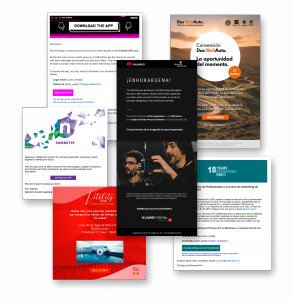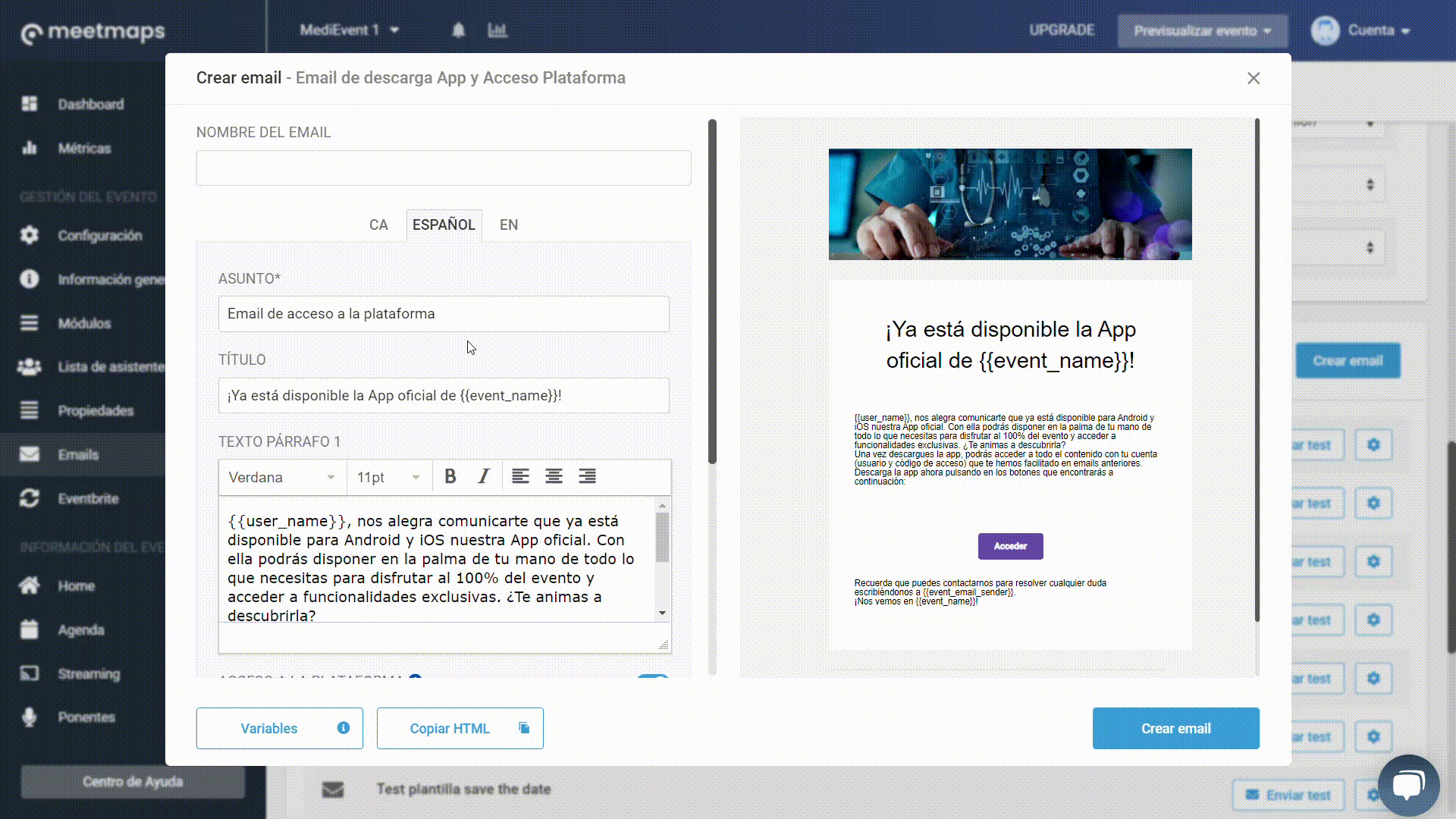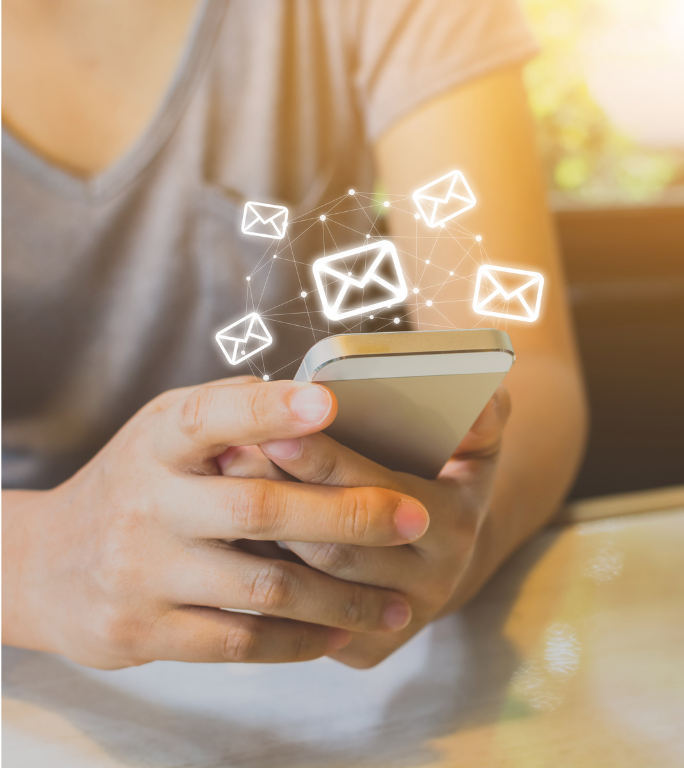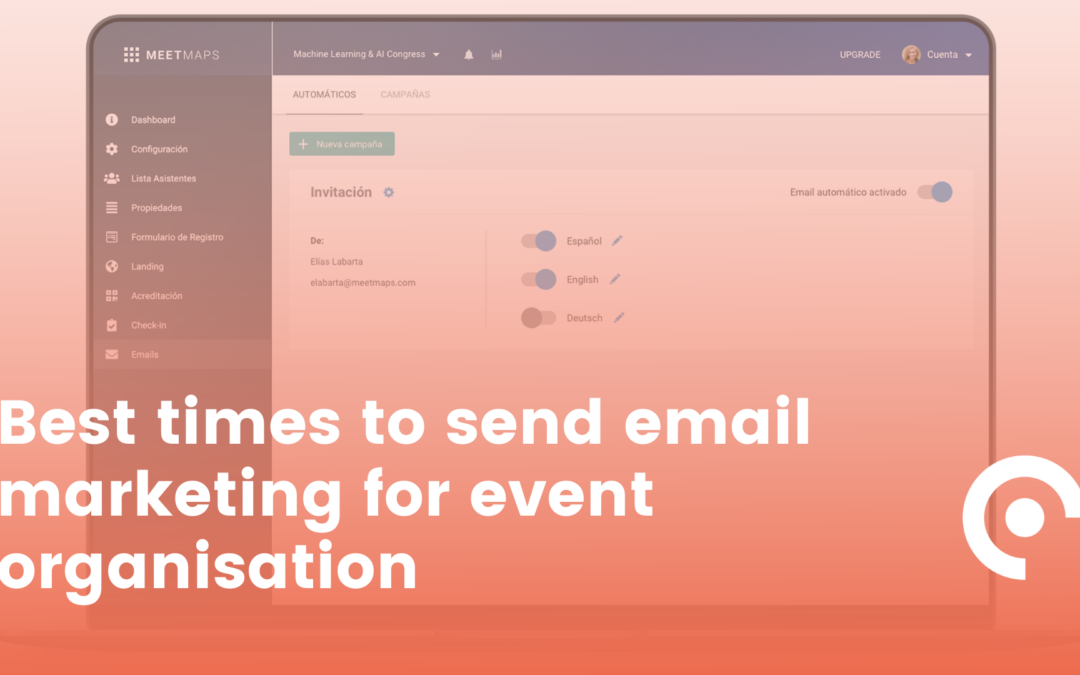Índice de contenidos
Organizing an event requires a lot of time and effort, from selecting the venue to contracting the necessary services for its execution. However, it is not enough to have the whole organization process under control if you do not have a good marketing strategy. Email marketing is a very useful tool for the promotion of events, as it allows you to reach a large number of people in a short time and at a low cost. But, what are the best times to send email marketing in the organization of events? Therefore, in this article, we explain it to you.
Before the pre-sale
One of the best times to send email marketing during the organization of your event is before the pre-sale. The presale is a period in which accreditations are offered at a special price to a select group of people. For example, members of a fan club or cardholders of certain financial institutions.
For this reason, sending an email to these groups before the pre-sale can generate interest and excitement for the event. Secondly, this can lead to higher ticket sales in the pre-sale period and in the general sale.

During general sales
Firstly, another good time to send email marketing is during general ticket sales. At this point, it is key to keep the public interested and excited about the event, as this can lead to higher sales and recommendation of the event to friends and family.
In the email, it is important to include detailed information about the event, such as date, time, venue, guest artists, among others. Finally, it is also extraordinary to include images and videos that show the excitement and energy of the event.
Pre-event reminders
Particularly, close to the date of the event, it is relevant to send email reminders to attendees. These reminders can include additional information, such as the exact location of the event, parking recommendations, door opening times, among others.
It is effective to remember that these emails should be sent in plenty of time so that attendees have the opportunity to plan their arrival and avoid any last minute problems.

After the event
Once the event is over, it is important to send an email to the attendees to thank them for their presence and support for the event. In this email, you can include a summary of the event, photos and videos from the event, as well as information about future similar events.
This email is an opportunity to maintain a connection with attendees and encourage their loyalty to the brand or event organizer.
What is the ideal frequency to send emails?
The ideal frequency to send email marketing during the organization of events depends on the type of event and the target audience.
Generally, it is recommended to send emails at least once a month before the event and once a week during ticket sales. However, it is noteworthy to avoid sending emails too frequently, as this can result in recipients feeling overwhelmed and deciding to unsubscribe from the mailing list.
How do you ensure that your emails reach the inbox of your recipients?
Certainly, it is remarcable to follow good email marketing practices, such as segmenting the mailing list, using attractive and personalized subject lines, and optimizing content for mobile devices.
Furthermore, it is also important to avoid using spam terms in the email, such as “free”, “discount”, among others, as this can cause the email to be detected as spam and sent to the junk folder.

What metrics should be monitored to evaluate the success of an event email marketing campaign?
Finally, the success of an event email marketing campaign is measured by the following metrics: open rate, click through rate, conversion rate, return on investment and number of tickets sold.
The open rate indicates the percentage of people who opened the email. Undoubtely, the click-through rate indicates the percentage of people who clicked on a link in the email. The conversion rate indicates the percentage of people who bought tickets after clicking on the link in the email.
Aditionally, ROI refers to the ratio between the cost of the email marketing campaign and the revenue generated from ticket sales. Finally, the number of tickets sold indicates the overall success of the email marketing campaign.
Afterwards, email marketing is a very useful tool for the promotion of events. It allows you to reach a large number of people in a short time and at a low cost. The best times to send email marketing in event organization include before the pre-sale, during the general sale, pre-event reminders and after the event.
For that, it is important to follow good email marketing practices, such as segmenting the mailing list, using attractive and personalized subject lines, and optimizing content for mobile devices. It is also important to monitor key metrics to evaluate the success of the email marketing campaign.
In summary, by following these practices and sending emails at the right times, you can increase ticket sales and interest in the event, which can lead to a successful and profitable event.
Related blogs:
- Trends in event organization 2024
- Lead Scanner, the tool that will improve networking at your event
- What is a festival and what types of festival are there?
- Complete guide to use event apps

